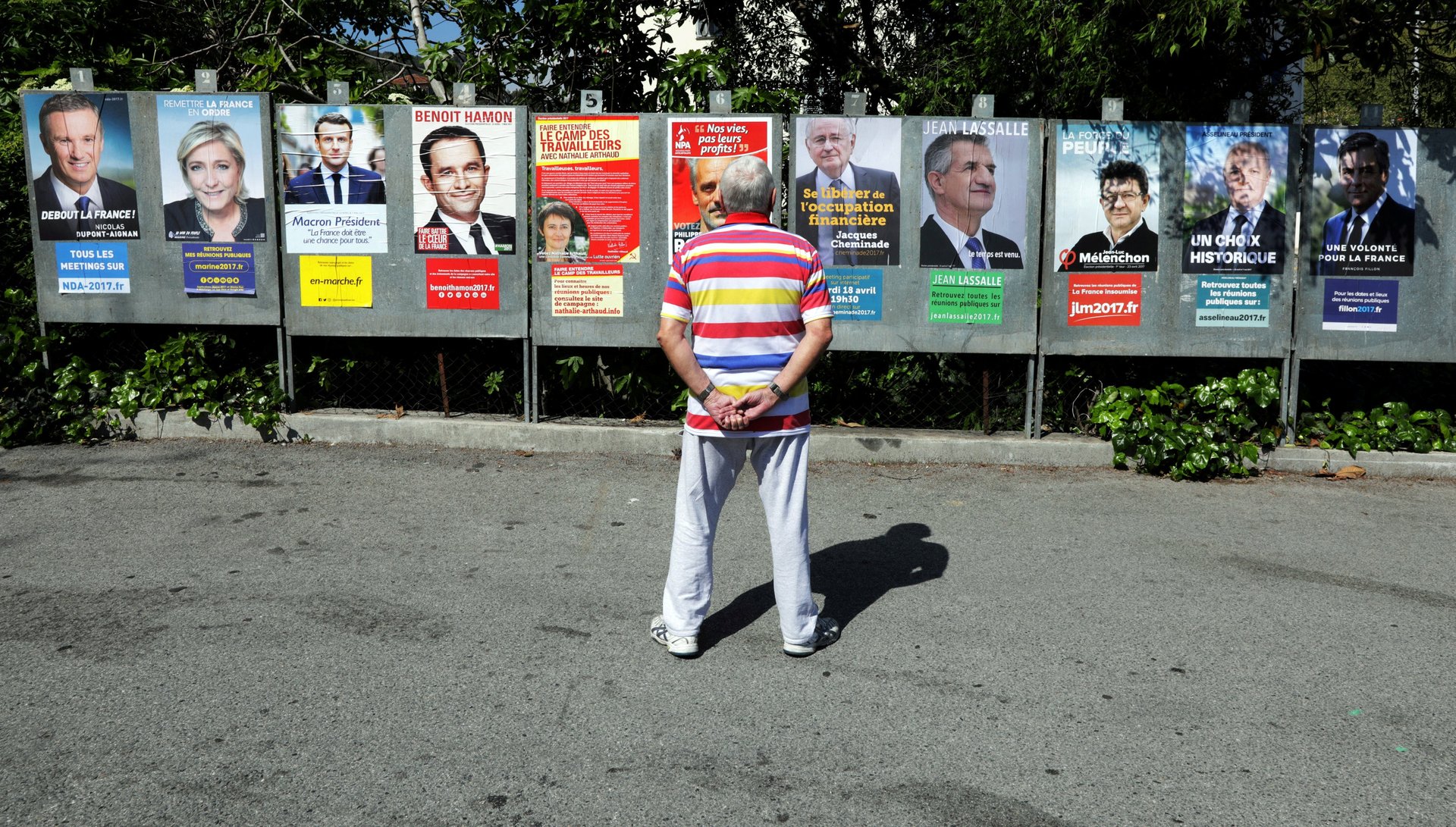France’s election is a foretaste of how strange politics everywhere is going to become
The point is approaching in the populist era when left- and right-wing parties become so extreme that they end up meeting, as if someone had grabbed the two ends of the political spectrum and bent it into a loop.


The point is approaching in the populist era when left- and right-wing parties become so extreme that they end up meeting, as if someone had grabbed the two ends of the political spectrum and bent it into a loop.
France is already there. For the first time in the country’s modern political history, candidates from both its mainstream parties are bracing to be knocked out of the presidential election, of which the first of two voting rounds is on Sunday.
The two front-runners are from outside the mainstream: far-right leader Marine Le Pen, who has lured disenchanted voters from both left and right with her protectionist mantra, and Emmanuel Macron, a pro-market centrist who melts the hearts of urban progressives.
But a close challenger for third place brings the country’s extreme views full circle. In recent weeks, far-left firebrand Jean-Luc Mélenchon, a tech-savvy admirer of Mao Zedong and Hugo Chávez, has shot up in the polls. His tirades against free trade and clubby elites are eerily similar to those of his far-right rival. Bankers, Mélenchon said at a campaign rally (paywall), are “parasites” on society who “produce nothing.” In an interview, Le Pen called for a return to “real economies, not Wall Street economies, but rather factories and farmers.”
Both candidates are pro-worker and anti-EU and favor chummier ties with Russia. The only major difference between them boils down to xenophobia. Le Pen, whose fear-mongering implicates French Muslims in the rise of ISIL, wants a blanket ban on immigration, while Mélenchon, born and raised in Morocco, preaches compassion for refugees (link in French), but better control over those who have yet to arrive.
The merging of their ideals speaks to the unraveling of left and right categories everywhere, as voters contend with the forces of globalization in everyday life. In France, the burning question is how to root its cherished culture in a destabilized world. The answer it comes to will transcend borders, setting a course for Europe, global markets, and modern politics for years to come.
This was published as part of the weekend edition of the Quartz Daily Brief. Sign up here for our newsletters, tailored for morning delivery in Asia, Europe and Africa, or the Americas.